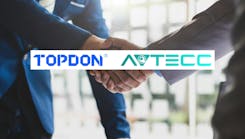Shell said that innovation, adventurous thinking and long-term partnerships between automotive original engine manufacturers (OEMs) and fuels and lubricants manufacturers will be fundamental to improving vehicle energy efficiency. Goh Swee Chen, Shell’s vice president for bulk fuels and lubricants in Asia, outlined the importance of co-engineering to push the frontiers of energy efficiency. She was addressing industry experts at the 17th Annual Fuels and Lubricants Conference in Singapore, which centered around the theme “Technology & Innovation: Creating More with Less.”
Against the backdrop of increased global demand for energy, and with two thirds of vehicles still expected to use current engine technologies and conventional liquid fuels by 2050, Swee Chen said: “We need to use innovation and partnerships to find ways of improving fuel economy and engine cleanliness by improving and applying existing technologies.” She also highlighted the critical role of lubricants in improving the efficiency of the engine and driveline.
Shell currently works with a number of leading OEMs, including Daimler. Daimler’s most economical truck, the new Mercedes-Benz Actros, set a new world record for the most fuel-efficient 40-tonne truck when powered by Shell FuelSave Diesel and Shell Rimula R6 LME, a Shell lubricant. Shell also worked with Gordon Murray Design, a company with a background in motor sport, to develop a radical new type of lightweight urban passenger vehicle to help meet the CO2 challenge. This led to the development of an innovative concept engine lubricant capable of achieving a 6.5 percent improvement in fuel efficiency, a step-change compared to improvements of around 2.5 per cent achieved in typical fuel economy lubricant development programs.
While these partnerships have broken new ground, Swee Chen called upon the industry to commit to greater collaboration: “Further savings can be achieved when the lubricants provider and the automotive OEM work together to develop bespoke products for a particular vehicle. Those developments are clearly important, but to move those efficiency gains onto the next level, the industry will need to move to the next level of collaboration. This means long-term co-engineering projects where we develop fuels, lubricants and vehicles together.”
To unlock this future potential, Swee Chen argued that the solution lies in focusing on customer preferences and needs, as well as pushing the boundaries of innovation: “Fuels and lubricants providers and OEMs will all need to consider more adventurous approaches. In particular, I believe we should be considering new approaches to specifying oils, and to tackling issues of backward compatibility.”
Swee Chen concluded by warning that no one company or part of the industry will succeed by acting alone: “We can see that significant progress can be made through partnerships focused on improving the technologies that we already have in place for conventional fuels and vehicles. But that will not be enough. We will also need larger scale collaboration across OEMs and the whole range of energy providers to develop the technologies, the rules, the practical applications needed to meet the challenges of the future. And we, at Shell, certainly want to remain at the heart of this debate and strengthen our partnerships with OEMs further to move our collaboration and co-engineering onto the next level.”
To read the full speech, click here.
